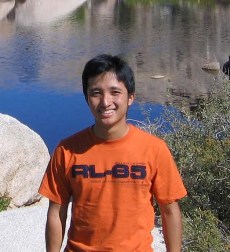|

|
Dr. Wang Yao (姚望)
Associate Professor
Department of Physics, The University of Hong Kong
Email: wangyao@hku.hk
|
Abstract: The recent emergence of two-dimensional transition metal dichalcogenides (TMDs) provides a new laboratory for exploring the internal quantum degrees of freedom of electrons for new electronics. These include the real electron spin and the valley pseudospin that labels the degenerate band extrema in momentum space. I will show that in 2D TMDs, the valley pseudospin acquires physical properties which allow its quantum manipulations in ways similar to the control of spins, making possible valley-based electronics. The generation and control of spin and valley pseudospin currents are at the heart of spin and valley based electronics. Two mechanisms will be discussed for generating spin and valley currents of electrons in 2D TMDs: (I) the valley and spin Hall current arising from the Berry curvatures; and (II) the nonlinear valley and spin currents arising from Fermi pocket anisotropy. The two effects have distinct scaling with the field and different dependence of the current direction on the field direction and crystalline axis. The nonlinear current response further allows two unprecedented possibilities to generate pure spin and valley flows without net charge current, either by an AC bias or by an inhomogeneous temperature distribution. This points to a new route towards electrical and thermal generations of spin and valley currents for spintronic and valleytronic applications. I will also discuss the valley Hall effect of charged excitons in monolayer TMDs arising from the exchange interaction between the electron and hole constituents of the exciton.
About the Speaker: Associate Professor Yao received his B.S. in Physics from University of Peking in 2001 and his Ph.D. in physics from University of California at USA in 2006. After working as a postdoctoral researcher at University of Texas at Austin, he became an assistant professor at University of Hong Kong in 2008.
Date&Time: January 16, 2015 (Friday), 10:30 - 11:30 a.m.
Location: 606 Conference Room


